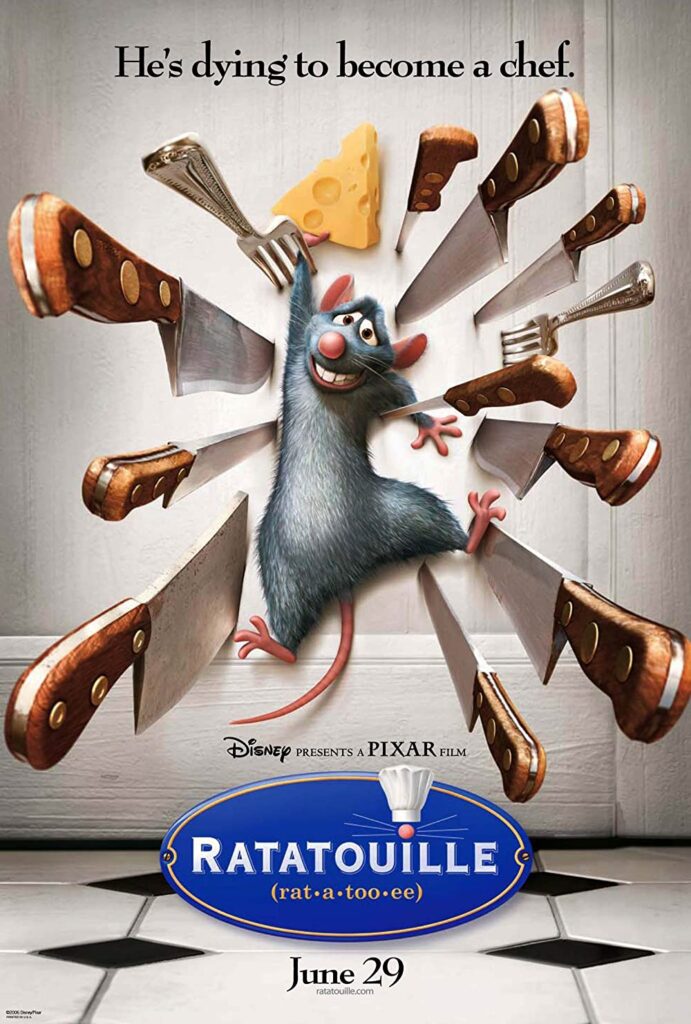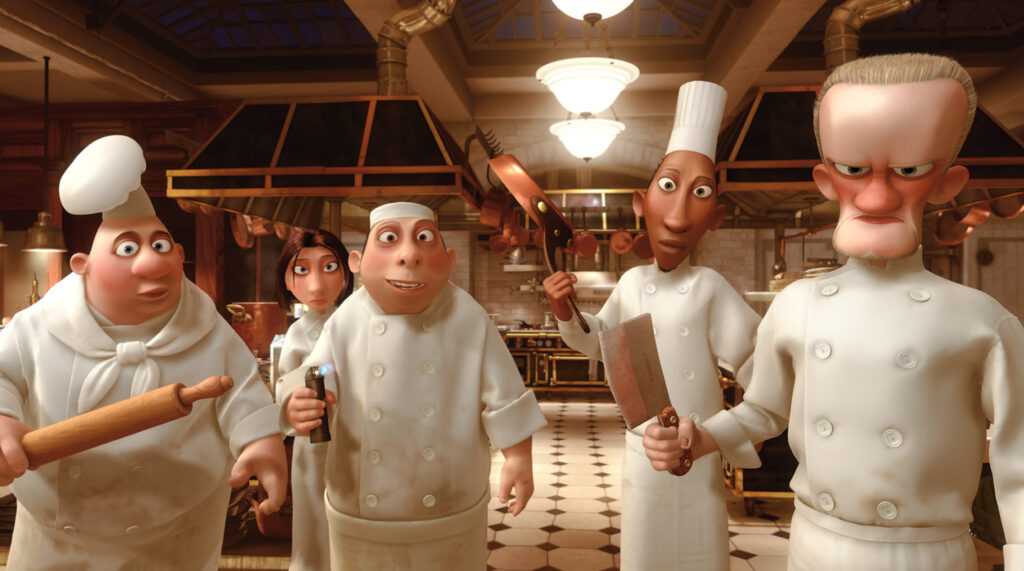
Many years ago we enjoyed a wonderful week’s holiday in Paris, and, yes, we did go to the Eiffel Tower and the Louvre and the Fondation le Corbusier, but largely we spent our time eating. Every night we visited a different restaurant, with the exception of a place almost opposite the hotel called ‘Les Epicureans’, I believe, which we went to twice, and where the maitre d’ looked exactly like Kevin Spacey. (I am aware that detail is no longer the mildly amusing story it used to be…)
This Saturday we watched Brad Bird’s 2007 movie Ratatouille – written by Bird with Jan Pikava and Jim Capobianco – and I was reminded vividly of that week, set as it is in a recognisable (though romanticised and Disneyfied) Paris.
The film is superficially an aspirational fable about achieving your goals, but at its heart it is a nested series of love stories. Family love and its associated expectations for Remy the culinary rat, workplace love for Linguini the love child of the famous chef Gusteau and fierce sous-chef Colette (although their affair is the most underbaked ingredient in the movie in my opinion…)
But greater than all of these, the film is about the love of food. It is a film about food made by people who love food. And sure enough the food looks and sounds fabulous. The camera is synaesthetic and Proustian in its appreciation.

Yet underneath the gastronomic headlines, what the film really gets right in my opinion is the tone of working in a restaurant kitchen. My first job was in a steak house in the village where I grew up, and Ratatouille’s portrayal of the eclectic team of outsiders working behind the swing doors and the high pressure mix of camaraderie, ambition and drudgery that forms a day at the hob is brimming with authenticity.
This, I think more than any other aspect of the film, is what elevates it. It underlines one of the fundamental principles of writing for the screen: whatever the film seems to be about, it is always really about the characters. We may come for the food, but we stay for the staff.
